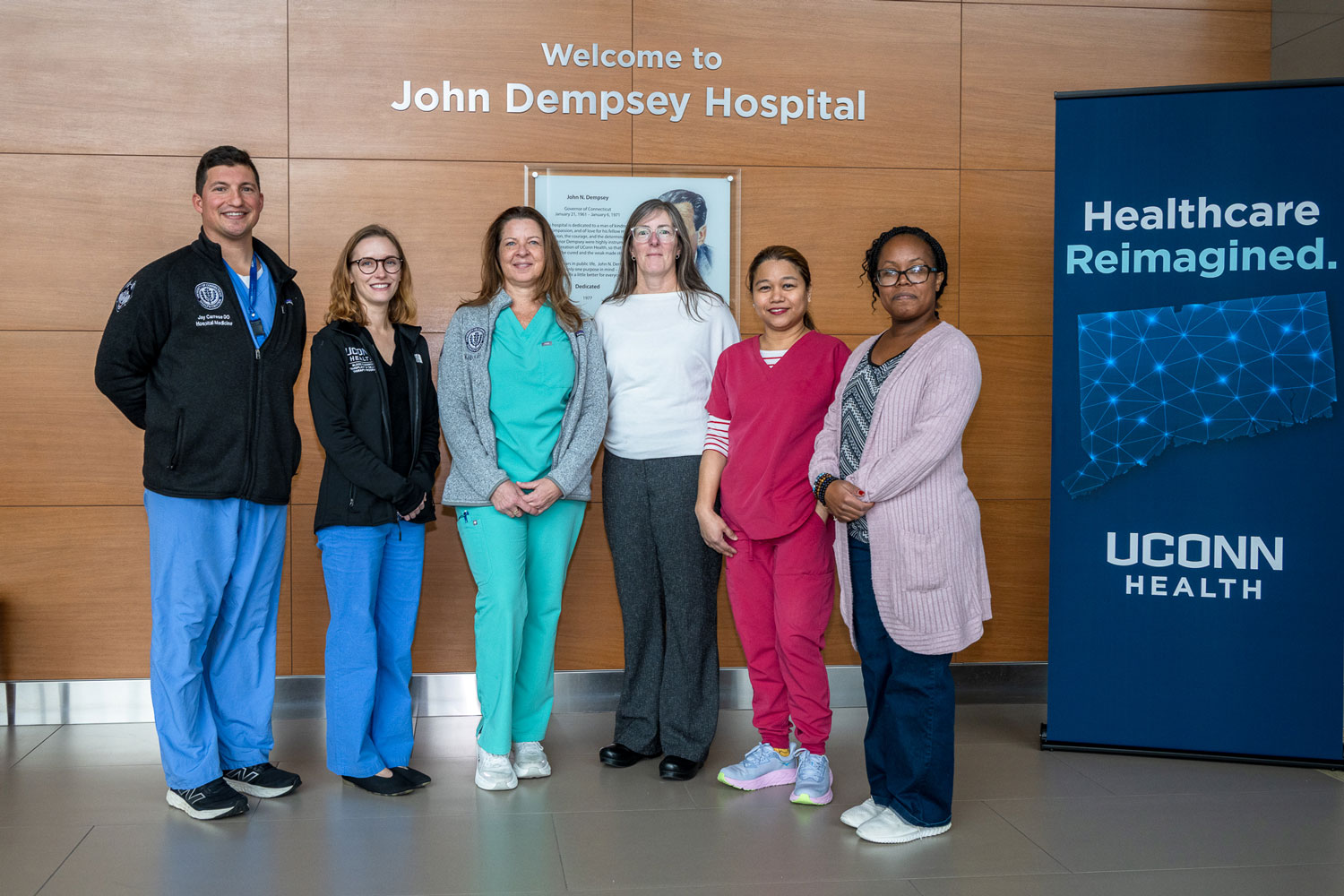Normal
0
false
false
false
EN-US
X-NONE
X-NONE
<w:LatentStyles DefLockedState="false" DefUnhideWhenUsed="true"
DefSemiHidden=”true” DefQFormat=”false” DefPriority=”99″
LatentStyleCount=”267″>
<w:LsdException Locked="false" Priority="0" SemiHidden="false"
UnhideWhenUsed=”false” QFormat=”true” Name=”Normal”/>
<w:LsdException Locked="false" Priority="9" SemiHidden="false"
UnhideWhenUsed=”false” QFormat=”true” Name=”heading 1″/>
<w:LsdException Locked="false" Priority="10" SemiHidden="false"
UnhideWhenUsed=”false” QFormat=”true” Name=”Title”/>
<w:LsdException Locked="false" Priority="11" SemiHidden="false"
UnhideWhenUsed=”false” QFormat=”true” Name=”Subtitle”/>
<w:LsdException Locked="false" Priority="22" SemiHidden="false"
UnhideWhenUsed=”false” QFormat=”true” Name=”Strong”/>
<w:LsdException Locked="false" Priority="20" SemiHidden="false"
UnhideWhenUsed=”false” QFormat=”true” Name=”Emphasis”/>
<w:LsdException Locked="false" Priority="59" SemiHidden="false"
UnhideWhenUsed=”false” Name=”Table Grid”/>
<w:LsdException Locked="false" Priority="1" SemiHidden="false"
UnhideWhenUsed=”false” QFormat=”true” Name=”No Spacing”/>
<w:LsdException Locked="false" Priority="60" SemiHidden="false"
UnhideWhenUsed=”false” Name=”Light Shading”/>
<w:LsdException Locked="false" Priority="61" SemiHidden="false"
UnhideWhenUsed=”false” Name=”Light List”/>
<w:LsdException Locked="false" Priority="62" SemiHidden="false"
UnhideWhenUsed=”false” Name=”Light Grid”/>
<w:LsdException Locked="false" Priority="63" SemiHidden="false"
UnhideWhenUsed=”false” Name=”Medium Shading 1″/>
<w:LsdException Locked="false" Priority="64" SemiHidden="false"
UnhideWhenUsed=”false” Name=”Medium Shading 2″/>
<w:LsdException Locked="false" Priority="65" SemiHidden="false"
UnhideWhenUsed=”false” Name=”Medium List 1″/>
<w:LsdException Locked="false" Priority="66" SemiHidden="false"
UnhideWhenUsed=”false” Name=”Medium List 2″/>
<w:LsdException Locked="false" Priority="67" SemiHidden="false"
UnhideWhenUsed=”false” Name=”Medium Grid 1″/>
<w:LsdException Locked="false" Priority="68" SemiHidden="false"
UnhideWhenUsed=”false” Name=”Medium Grid 2″/>
<w:LsdException Locked="false" Priority="69" SemiHidden="false"
UnhideWhenUsed=”false” Name=”Medium Grid 3″/>
<w:LsdException Locked="false" Priority="70" SemiHidden="false"
UnhideWhenUsed=”false” Name=”Dark List”/>
<w:LsdException Locked="false" Priority="71" SemiHidden="false"
UnhideWhenUsed=”false” Name=”Colorful Shading”/>
<w:LsdException Locked="false" Priority="72" SemiHidden="false"
UnhideWhenUsed=”false” Name=”Colorful List”/>
<w:LsdException Locked="false" Priority="73" SemiHidden="false"
UnhideWhenUsed=”false” Name=”Colorful Grid”/>
<w:LsdException Locked="false" Priority="60" SemiHidden="false"
UnhideWhenUsed=”false” Name=”Light Shading Accent 1″/>
<w:LsdException Locked="false" Priority="61" SemiHidden="false"
UnhideWhenUsed=”false” Name=”Light List Accent 1″/>
<w:LsdException Locked="false" Priority="62" SemiHidden="false"
UnhideWhenUsed=”false” Name=”Light Grid Accent 1″/>
<w:LsdException Locked="false" Priority="63" SemiHidden="false"
UnhideWhenUsed=”false” Name=”Medium Shading 1 Accent 1″/>
<w:LsdException Locked="false" Priority="64" SemiHidden="false"
UnhideWhenUsed=”false” Name=”Medium Shading 2 Accent 1″/>
<w:LsdException Locked="false" Priority="65" SemiHidden="false"
UnhideWhenUsed=”false” Name=”Medium List 1 Accent 1″/>
<w:LsdException Locked="false" Priority="34" SemiHidden="false"
UnhideWhenUsed=”false” QFormat=”true” Name=”List Paragraph”/>
<w:LsdException Locked="false" Priority="29" SemiHidden="false"
UnhideWhenUsed=”false” QFormat=”true” Name=”Quote”/>
<w:LsdException Locked="false" Priority="30" SemiHidden="false"
UnhideWhenUsed=”false” QFormat=”true” Name=”Intense Quote”/>
<w:LsdException Locked="false" Priority="66" SemiHidden="false"
UnhideWhenUsed=”false” Name=”Medium List 2 Accent 1″/>
<w:LsdException Locked="false" Priority="67" SemiHidden="false"
UnhideWhenUsed=”false” Name=”Medium Grid 1 Accent 1″/>
<w:LsdException Locked="false" Priority="68" SemiHidden="false"
UnhideWhenUsed=”false” Name=”Medium Grid 2 Accent 1″/>
<w:LsdException Locked="false" Priority="69" SemiHidden="false"
UnhideWhenUsed=”false” Name=”Medium Grid 3 Accent 1″/>
<w:LsdException Locked="false" Priority="70" SemiHidden="false"
UnhideWhenUsed=”false” Name=”Dark List Accent 1″/>
<w:LsdException Locked="false" Priority="71" SemiHidden="false"
UnhideWhenUsed=”false” Name=”Colorful Shading Accent 1″/>
<w:LsdException Locked="false" Priority="72" SemiHidden="false"
UnhideWhenUsed=”false” Name=”Colorful List Accent 1″/>
<w:LsdException Locked="false" Priority="73" SemiHidden="false"
UnhideWhenUsed=”false” Name=”Colorful Grid Accent 1″/>
<w:LsdException Locked="false" Priority="60" SemiHidden="false"
UnhideWhenUsed=”false” Name=”Light Shading Accent 2″/>
<w:LsdException Locked="false" Priority="61" SemiHidden="false"
UnhideWhenUsed=”false” Name=”Light List Accent 2″/>
<w:LsdException Locked="false" Priority="62" SemiHidden="false"
UnhideWhenUsed=”false” Name=”Light Grid Accent 2″/>
<w:LsdException Locked="false" Priority="63" SemiHidden="false"
UnhideWhenUsed=”false” Name=”Medium Shading 1 Accent 2″/>
<w:LsdException Locked="false" Priority="64" SemiHidden="false"
UnhideWhenUsed=”false” Name=”Medium Shading 2 Accent 2″/>
<w:LsdException Locked="false" Priority="65" SemiHidden="false"
UnhideWhenUsed=”false” Name=”Medium List 1 Accent 2″/>
<w:LsdException Locked="false" Priority="66" SemiHidden="false"
UnhideWhenUsed=”false” Name=”Medium List 2 Accent 2″/>
<w:LsdException Locked="false" Priority="67" SemiHidden="false"
UnhideWhenUsed=”false” Name=”Medium Grid 1 Accent 2″/>
<w:LsdException Locked="false" Priority="68" SemiHidden="false"
UnhideWhenUsed=”false” Name=”Medium Grid 2 Accent 2″/>
<w:LsdException Locked="false" Priority="69" SemiHidden="false"
UnhideWhenUsed=”false” Name=”Medium Grid 3 Accent 2″/>
<w:LsdException Locked="false" Priority="70" SemiHidden="false"
UnhideWhenUsed=”false” Name=”Dark List Accent 2″/>
<w:LsdException Locked="false" Priority="71" SemiHidden="false"
UnhideWhenUsed=”false” Name=”Colorful Shading Accent 2″/>
<w:LsdException Locked="false" Priority="72" SemiHidden="false"
UnhideWhenUsed=”false” Name=”Colorful List Accent 2″/>
<w:LsdException Locked="false" Priority="73" SemiHidden="false"
UnhideWhenUsed=”false” Name=”Colorful Grid Accent 2″/>
<w:LsdException Locked="false" Priority="60" SemiHidden="false"
UnhideWhenUsed=”false” Name=”Light Shading Accent 3″/>
<w:LsdException Locked="false" Priority="61" SemiHidden="false"
UnhideWhenUsed=”false” Name=”Light List Accent 3″/>
<w:LsdException Locked="false" Priority="62" SemiHidden="false"
UnhideWhenUsed=”false” Name=”Light Grid Accent 3″/>
<w:LsdException Locked="false" Priority="63" SemiHidden="false"
UnhideWhenUsed=”false” Name=”Medium Shading 1 Accent 3″/>
<w:LsdException Locked="false" Priority="64" SemiHidden="false"
UnhideWhenUsed=”false” Name=”Medium Shading 2 Accent 3″/>
<w:LsdException Locked="false" Priority="65" SemiHidden="false"
UnhideWhenUsed=”false” Name=”Medium List 1 Accent 3″/>
<w:LsdException Locked="false" Priority="66" SemiHidden="false"
UnhideWhenUsed=”false” Name=”Medium List 2 Accent 3″/>
<w:LsdException Locked="false" Priority="67" SemiHidden="false"
UnhideWhenUsed=”false” Name=”Medium Grid 1 Accent 3″/>
<w:LsdException Locked="false" Priority="68" SemiHidden="false"
UnhideWhenUsed=”false” Name=”Medium Grid 2 Accent 3″/>
<w:LsdException Locked="false" Priority="69" SemiHidden="false"
UnhideWhenUsed=”false” Name=”Medium Grid 3 Accent 3″/>
<w:LsdException Locked="false" Priority="70" SemiHidden="false"
UnhideWhenUsed=”false” Name=”Dark List Accent 3″/>
<w:LsdException Locked="false" Priority="71" SemiHidden="false"
UnhideWhenUsed=”false” Name=”Colorful Shading Accent 3″/>
<w:LsdException Locked="false" Priority="72" SemiHidden="false"
UnhideWhenUsed=”false” Name=”Colorful List Accent 3″/>
<w:LsdException Locked="false" Priority="73" SemiHidden="false"
UnhideWhenUsed=”false” Name=”Colorful Grid Accent 3″/>
<w:LsdException Locked="false" Priority="60" SemiHidden="false"
UnhideWhenUsed=”false” Name=”Light Shading Accent 4″/>
<w:LsdException Locked="false" Priority="61" SemiHidden="false"
UnhideWhenUsed=”false” Name=”Light List Accent 4″/>
<w:LsdException Locked="false" Priority="62" SemiHidden="false"
UnhideWhenUsed=”false” Name=”Light Grid Accent 4″/>
<w:LsdException Locked="false" Priority="63" SemiHidden="false"
UnhideWhenUsed=”false” Name=”Medium Shading 1 Accent 4″/>
<w:LsdException Locked="false" Priority="64" SemiHidden="false"
UnhideWhenUsed=”false” Name=”Medium Shading 2 Accent 4″/>
<w:LsdException Locked="false" Priority="65" SemiHidden="false"
UnhideWhenUsed=”false” Name=”Medium List 1 Accent 4″/>
<w:LsdException Locked="false" Priority="66" SemiHidden="false"
UnhideWhenUsed=”false” Name=”Medium List 2 Accent 4″/>
<w:LsdException Locked="false" Priority="67" SemiHidden="false"
UnhideWhenUsed=”false” Name=”Medium Grid 1 Accent 4″/>
<w:LsdException Locked="false" Priority="68" SemiHidden="false"
UnhideWhenUsed=”false” Name=”Medium Grid 2 Accent 4″/>
<w:LsdException Locked="false" Priority="69" SemiHidden="false"
UnhideWhenUsed=”false” Name=”Medium Grid 3 Accent 4″/>
<w:LsdException Locked="false" Priority="70" SemiHidden="false"
UnhideWhenUsed=”false” Name=”Dark List Accent 4″/>
<w:LsdException Locked="false" Priority="71" SemiHidden="false"
UnhideWhenUsed=”false” Name=”Colorful Shading Accent 4″/>
<w:LsdException Locked="false" Priority="72" SemiHidden="false"
UnhideWhenUsed=”false” Name=”Colorful List Accent 4″/>
<w:LsdException Locked="false" Priority="73" SemiHidden="false"
UnhideWhenUsed=”false” Name=”Colorful Grid Accent 4″/>
<w:LsdException Locked="false" Priority="60" SemiHidden="false"
UnhideWhenUsed=”false” Name=”Light Shading Accent 5″/>
<w:LsdException Locked="false" Priority="61" SemiHidden="false"
UnhideWhenUsed=”false” Name=”Light List Accent 5″/>
<w:LsdException Locked="false" Priority="62" SemiHidden="false"
UnhideWhenUsed=”false” Name=”Light Grid Accent 5″/>
<w:LsdException Locked="false" Priority="63" SemiHidden="false"
UnhideWhenUsed=”false” Name=”Medium Shading 1 Accent 5″/>
<w:LsdException Locked="false" Priority="64" SemiHidden="false"
UnhideWhenUsed=”false” Name=”Medium Shading 2 Accent 5″/>
<w:LsdException Locked="false" Priority="65" SemiHidden="false"
UnhideWhenUsed=”false” Name=”Medium List 1 Accent 5″/>
<w:LsdException Locked="false" Priority="66" SemiHidden="false"
UnhideWhenUsed=”false” Name=”Medium List 2 Accent 5″/>
<w:LsdException Locked="false" Priority="67" SemiHidden="false"
UnhideWhenUsed=”false” Name=”Medium Grid 1 Accent 5″/>
<w:LsdException Locked="false" Priority="68" SemiHidden="false"
UnhideWhenUsed=”false” Name=”Medium Grid 2 Accent 5″/>
<w:LsdException Locked="false" Priority="69" SemiHidden="false"
UnhideWhenUsed=”false” Name=”Medium Grid 3 Accent 5″/>
<w:LsdException Locked="false" Priority="70" SemiHidden="false"
UnhideWhenUsed=”false” Name=”Dark List Accent 5″/>
<w:LsdException Locked="false" Priority="71" SemiHidden="false"
UnhideWhenUsed=”false” Name=”Colorful Shading Accent 5″/>
<w:LsdException Locked="false" Priority="72" SemiHidden="false"
UnhideWhenUsed=”false” Name=”Colorful List Accent 5″/>
<w:LsdException Locked="false" Priority="73" SemiHidden="false"
UnhideWhenUsed=”false” Name=”Colorful Grid Accent 5″/>
<w:LsdException Locked="false" Priority="60" SemiHidden="false"
UnhideWhenUsed=”false” Name=”Light Shading Accent 6″/>
<w:LsdException Locked="false" Priority="61" SemiHidden="false"
UnhideWhenUsed=”false” Name=”Light List Accent 6″/>
<w:LsdException Locked="false" Priority="62" SemiHidden="false"
UnhideWhenUsed=”false” Name=”Light Grid Accent 6″/>
<w:LsdException Locked="false" Priority="63" SemiHidden="false"
UnhideWhenUsed=”false” Name=”Medium Shading 1 Accent 6″/>
<w:LsdException Locked="false" Priority="64" SemiHidden="false"
UnhideWhenUsed=”false” Name=”Medium Shading 2 Accent 6″/>
<w:LsdException Locked="false" Priority="65" SemiHidden="false"
UnhideWhenUsed=”false” Name=”Medium List 1 Accent 6″/>
<w:LsdException Locked="false" Priority="66" SemiHidden="false"
UnhideWhenUsed=”false” Name=”Medium List 2 Accent 6″/>
<w:LsdException Locked="false" Priority="67" SemiHidden="false"
UnhideWhenUsed=”false” Name=”Medium Grid 1 Accent 6″/>
<w:LsdException Locked="false" Priority="68" SemiHidden="false"
UnhideWhenUsed=”false” Name=”Medium Grid 2 Accent 6″/>
<w:LsdException Locked="false" Priority="69" SemiHidden="false"
UnhideWhenUsed=”false” Name=”Medium Grid 3 Accent 6″/>
<w:LsdException Locked="false" Priority="70" SemiHidden="false"
UnhideWhenUsed=”false” Name=”Dark List Accent 6″/>
<w:LsdException Locked="false" Priority="71" SemiHidden="false"
UnhideWhenUsed=”false” Name=”Colorful Shading Accent 6″/>
<w:LsdException Locked="false" Priority="72" SemiHidden="false"
UnhideWhenUsed=”false” Name=”Colorful List Accent 6″/>
<w:LsdException Locked="false" Priority="73" SemiHidden="false"
UnhideWhenUsed=”false” Name=”Colorful Grid Accent 6″/>
<w:LsdException Locked="false" Priority="19" SemiHidden="false"
UnhideWhenUsed=”false” QFormat=”true” Name=”Subtle Emphasis”/>
<w:LsdException Locked="false" Priority="21" SemiHidden="false"
UnhideWhenUsed=”false” QFormat=”true” Name=”Intense Emphasis”/>
<w:LsdException Locked="false" Priority="31" SemiHidden="false"
UnhideWhenUsed=”false” QFormat=”true” Name=”Subtle Reference”/>
<w:LsdException Locked="false" Priority="32" SemiHidden="false"
UnhideWhenUsed=”false” QFormat=”true” Name=”Intense Reference”/>
<w:LsdException Locked="false" Priority="33" SemiHidden="false"
UnhideWhenUsed=”false” QFormat=”true” Name=”Book Title”/>
/* Style Definitions */
table.MsoNormalTable
{mso-style-name:”Table Normal”;
mso-tstyle-rowband-size:0;
mso-tstyle-colband-size:0;
mso-style-noshow:yes;
mso-style-priority:99;
mso-style-parent:””;
mso-padding-alt:0in 5.4pt 0in 5.4pt;
mso-para-margin-top:0in;
mso-para-margin-right:0in;
mso-para-margin-bottom:10.0pt;
mso-para-margin-left:0in;
line-height:115%;
mso-pagination:widow-orphan;
font-size:11.0pt;
font-family:”Calibri”,”sans-serif”;
mso-ascii-font-family:Calibri;
mso-ascii-theme-font:minor-latin;
mso-hansi-font-family:Calibri;
mso-hansi-theme-font:minor-latin;}
 Dr. Quing Zhu, a professor of Electrical & Computer Engineering and Biomedical Engineering, has received a four-year, $1.43 million grant from the National Institutes of Health in support of her research aimed at predicting the effectiveness of preoperative or neoadjuvant chemotherapy (NAC) used in treating advanced breast cancers.
Dr. Quing Zhu, a professor of Electrical & Computer Engineering and Biomedical Engineering, has received a four-year, $1.43 million grant from the National Institutes of Health in support of her research aimed at predicting the effectiveness of preoperative or neoadjuvant chemotherapy (NAC) used in treating advanced breast cancers.
NAC is increasingly used in the management of locally advanced breast cancers as well as in patients whose cancers can be surgically removed but which may not be amenable to breast conserving approaches. Complete eradication of invasive tumor cells in the primary tumor bed following neoadjuvant therapy is strongly correlated with improved disease-free survival and overall survival. However, it is difficult to reliably predict which patients will be cancer free following preoperative chemotherapy based on conventional pathologic tumor characteristics determined before treatment. Furthermore, patient responses to chemotherapy vary widely.
The challenge of evaluating the effectiveness of the NAC is at the heart of Dr. Zhu’s NIH-funded project. With her research team, Dr. Zhu has invented a number of novel, complex imaging systems that integrate near-infrared (NIR) diffuse optical tomography with ultrasound (US) imaging to increase diagnostic and therapeutic accuracy in breast and ovarian cancer patients. For this project, Dr. Zhu and her team will refine and validate the potential role of the NIR/US imaging system in assessing how a breast cancer patient’s disease will respond to NAC.
Dr. Zhu will field test the system on breast cancer patients, in collaboration with teams of physicians at the UConn Health Center, led by Dr. Susan Tannenbaum; Hartford Hospital, led  by Drs. Andrew Ricci and Patricia DeFusco; and Waterbury Hospital, led by Dr. Scott Kurtzman. According to Dr. Zhu, approximately 80 breast cancer patients with locally-advanced cancers will be recruited from the three hospitals. Using her novel system, the research team will image tumors prior to NAC, during early NAC, and immediately prior to surgery to assess how a patient’s tumor will respond to different NAC regimens and to pinpoint the best time-window for assessing a tumor for NAC.
by Drs. Andrew Ricci and Patricia DeFusco; and Waterbury Hospital, led by Dr. Scott Kurtzman. According to Dr. Zhu, approximately 80 breast cancer patients with locally-advanced cancers will be recruited from the three hospitals. Using her novel system, the research team will image tumors prior to NAC, during early NAC, and immediately prior to surgery to assess how a patient’s tumor will respond to different NAC regimens and to pinpoint the best time-window for assessing a tumor for NAC.
In addition, Dr. Zhu and her team will optimize the technology and validate their predictive model, developed from pilot data involving 32 patients and based on tumor variables such as type, grade and mitotic count (an indicator of tumor proliferation); molecular markers associated with tumor types, including estrogen receptor (ER), progesterone receptor (PR), and HER-2/neu – a gene protein implicated in aggressive breast cancers; and pretreatment parameters measured by the NIR/US imager.
Dr. Zhu and her collaborators anticipate the successful completion of the project will provide a means to manage personalized breast cancer treatment and monitor treatment response. In the emerging era of personalized medicine, the ability to predict and monitor patient outcomes based on early therapeutic responses is crucial, and the team’s novel NIR/US technology will prove to be an invaluable predictive tool for physicians and their patients.
Read more about Dr. Zhu’s work here and here.



